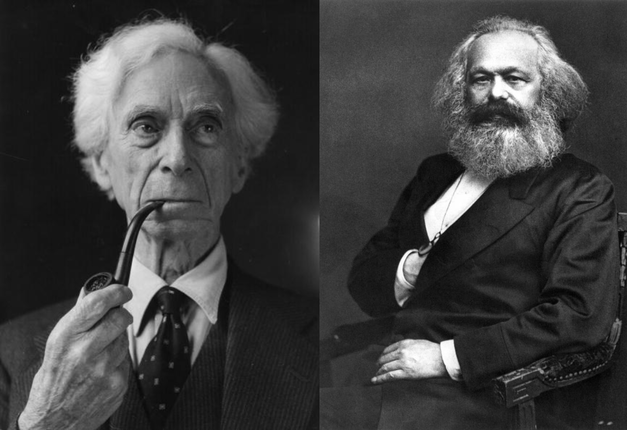|
Pride month has become an ideological support for rainbow capitalism. Every year in June there is the use of Pride symbols in marketing and advertising campaigns, clearly evident in the big “Pride sales” conducted by companies to gain the attention of the public and get as many customers as possible. Rainbow-themed items from big corporations go hand in hand with Pride parades which – unlike the 1969 Stonewall riots that were a response to police brutality – routinely include gay police officers celebrating themselves and thus, support repressive state power. This contemporary form of Pride month is indicative of the pernicious manner in which neoliberal capitalism has hollowed out queer radicalism. According to Lisa Duggan, Lesbian, Gay, Bisexual, Transgender and Queer (LGBTQ) politics has been transformed into “homonormativity”: “a politics that does not contest dominant heteronormative assumptions and institutions but upholds and sustains them, while promising the possibility of a demobilized gay constituency and a privatized, depoliticized gay culture anchored in domesticity and consumption.” Dominant sections of the gay movement have abandoned demands for anti-capitalist liberation and sexual freedom in favor of individual and family-based rights. The primary goals have been defined as: “same-sex marriage and family recognition rights, market/ cultural visibility, access to the military, and hate crime/safety legislation.” Same-sex marriage is a meek response to the ravages of contemporary capitalism, offering marriage as a privatized solution to peoples’ needs for childcare, healthcare, economic stability, and social recognition. This vision of family is accompanied by the notion of consumerism, which creates a model of a nice settled couple dedicated to accumulating property and possibly raising children. In this socially-sexually regressive architecture of gay existence, homosexual people are promised the life of a “good citizen” through the purchase of lifestyle commodities. This subordination of queerness to civic ideals of respectability, national-belonging, and support for the free market creates internal hierarchies within the LGBTQ community. Queers of color, trans people, bisexuals, people with low incomes or without social status, indigenous queers, people who are single or non-monogamous and working-class women are erased from the new lesbian and gay world of marriage and consumerism. Nationally, the mainstream LGBTQ movement has been assisting queer capitalism by welcoming multinational corporations to sponsor pride parades or celebrating gay consumer achievements “while ignoring the needs of the LGBT/queer poor and working-class people who make the rainbow paraphernalia and work in low-wage service or retail jobs and street economies in gay neighborhoods. When LGBT activism has promoted the gay consumer-citizen at the cost of more radical and marginalized voices, it has sought political goals that benefit the wealthiest LGBT people at the cost of most.” Internationally, LGBTQ politics has aligned itself with imperialist interests; racialized queers, and particularly those of North African, West Asian or South Asian ancestry, face a growing tide of Islamophobia from Global North-based lesbian and gay organizations whose political capital depends upon moral integration with Western frames of superiority. In the words of Kenyan Farrow: “As long as Western liberal democracies can name “gay rights” as the new litmus test for an appropriate twenty-first century democracy, we can obsess about “anti-gay” legislation in Nigeria and say nothing about the violence and economic exploitation of the Shell Oil Company on the land and bodies of Nigerians. We can be seduced by the international gay travel industry to visit “gay friendly” (and “post-racial paradise”) Rio de Janeiro, and say nothing of the massive police violence and genocidal removal of blacks from favelas in preparation for the 2014 World Cup and 2016 Summer Olympics.” The conservative orientation of homonationalist-imperialist rainbow capitalism derives from its exclusive emphasis on cultural visibility at the expense of socio-political progress. Margot Weiss writes, “LGBT campaigns for visibility – in the form of media visibility, marketing recognition, new gay-orientated business developments, or social recognition – have depended on the invisibility, criminalization, and abjection of queered others.” This neoliberalization of LGBTQ communities supports the privatization of public institutions and spaces, the coercive policing of immigrant, racialized, and criminalized bodies and the development of elitist gay and lesbian commercial marketplaces and neighborhoods. In opposition to this reactionary tendency, we need queer communism that can connect LGBTQ liberation to political struggles around race, poverty, capitalism, and imperialism. This Pride month should force us to realize the futility of the queer movement’s strategy of demanding “representation” and “inclusion” within capitalist society. Such a reformist perspective defangs the militancy of Pride month, reducing it to a glorification of the ability of queer people to assimilate and succeed under capitalism. This year’s Pride month should act as an active celebration of gay lives and struggle, and its historical intersections with class and race. As Sophie Monk and Joni (Pitt) Cohen elaborate: “The truth of Pride is a parade of queer capitalism, and therefore the ability of one form of queer life – predominantly wealthy, predominantly white and predominantly male – to immiserate and exploit others…Queerness must not be seen as a floating, purely identitarian category. It is constituted through its fundamentally classed, raced and disabled intersections; people live not simply as queers, but as poor, as female as people of color. We must strive not simply towards a liberation of people as queer, but a liberation of queer people. To simply eliminate queerness as an axis of oppression, would not constitute liberation for queers, since queer life is inevitably bound up with a variety of other oppressions. We do not consider it an achievement to raise queers to the same level of misery of straight people; we desire the eradication of the immiseration of queer people as a whole.” AuthorYanis Iqbal is an independent researcher and freelance writer based in Aligarh, India and can be contacted at [email protected]. His articles have been published in the USA, UK, Canada, Australia, New Zealand, India and several countries of Latin America. Archives June 2022
0 Comments
Leave a Reply. |
Details
Archives
July 2024
Categories
All
|

 RSS Feed
RSS Feed